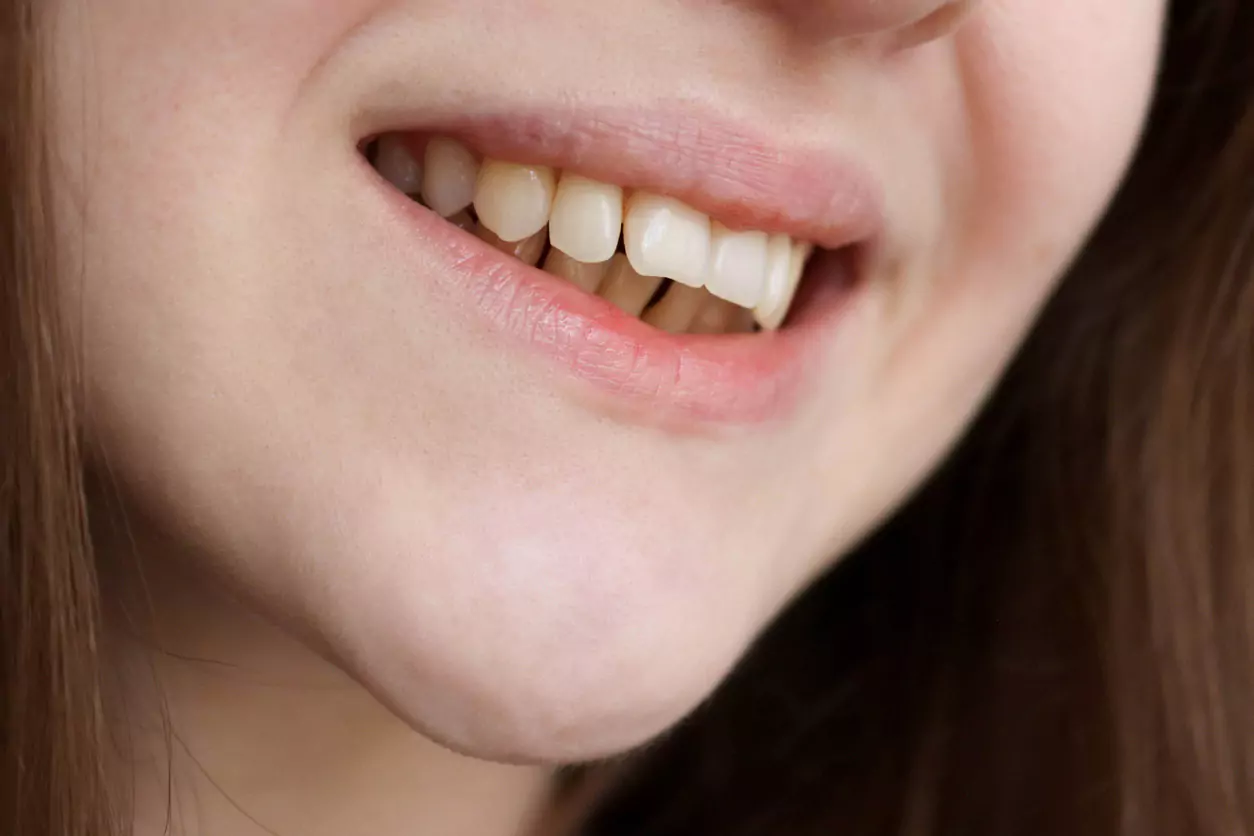Last Updated on: 27th December 2025, 08:10 am
Have you noticed that your upper front teeth cover too much of your lower teeth when you close your mouth? If so, you might have an overbite.
When biting down, a slight overlap of the upper teeth over the lower ones is normal. However, when that overlap becomes too pronounced, it can lead to a variety of issues, such as difficulty chewing, jaw pain, tooth wear, and changes in facial appearance.
In this guide, you’ll learn everything you need to know about overbites: what causes them, the problems they entail, and how to fix an overbite using the most effective treatment options available. It’s your first step toward a healthier, more confident smile.
What is an overbite?
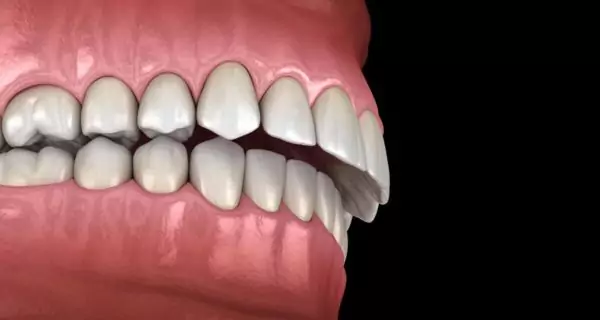
An overbite happens when your top front teeth cover too much of your bottom teeth when you close your mouth. Normally, they should only cover about a third, but with an overbite, they might cover half or even more.
This bite issue can make it harder to chew or speak clearly. it’s not treated, it can lead to dental problems and affect how your smile looks over time.
Types of overbite
There are two main types of overbite:
- Vertical overbite: The top teeth significantly overlap the bottom teeth in a vertical direction.
- Horizontal overbite (overjet): The top teeth protrude outward, extending too far over the bottom teeth horizontally.
While most people have a vertical overbite, some may show signs of both types.
Common causes of overbites
Overbites can develop for different reasons and are generally classified by their origin:
- Dental overbite: caused by misaligned teeth, even when the jaws are properly positioned.
- Skeletal overbite: occurs when the jaw is too large or too small, affecting how the teeth fit together.
Several factors can contribute to these issues, including:

- Genetics: The size and shape of your jaws and teeth are often inherited, which can increase the risk of developing an overbite.
- Childhood habits: Thumb sucking, extended pacifier use, or mouth breathing can affect jaw development early on.
- Jaw misalignment: When the upper and lower jaws grow at different rates, it can lead to bite problems.
- Tongue thrust and other habits: Constant pressure from the tongue or habits like nail biting can slowly push teeth out of place.
- Tooth loss: Missing teeth that aren’t replaced can cause nearby teeth to shift, making an overbite worse.
Why is it important to correct an overbite?
Correcting an overbite isn’t just about improving your smile, it can make a real difference in your oral health, comfort, and overall well-being. Here’s why it matters.
1. Prevents dental problems
An untreated overbite can lead to:
- Tooth wear and fractures from constant contact between the upper and lower front teeth.
- Tooth sensitivity caused by worn enamel.
- Higher risk of cavities and gum disease, since misaligned teeth are harder to clean properly.
- Teeth grinding (bruxism) which can further damage your teeth.
- Crowding.
2. Reduces physical discomfort
- Jaw, neck, and head pain may result from the stress a misaligned bite places on the jaw joint.
- In more severe cases, an overbite can contribute to temporomandibular joint disorder (TMD), causing stiffness, pain, or even jaw locking.
3. Improves function

- A corrected bite makes it easier to chew food properly, improving digestion and comfort while eating.
- It can also improve speech, making it easier to pronounce certain sounds clearly.
4. Protects gums and supporting structures
Misalignment can put uneven pressure on your teeth and gums, increasing the risk of gum recession and long-term tooth damage.
5. Boosts confidence and facial aesthetics
- Fixing an overbite can bring balance to your facial features and enhance your smile.
- It can also help you feel more confident in social situations, reducing self-consciousness related to your appearance.
Treating an overbite isn’t just about looks; it’s about feeling better, speaking clearly, chewing comfortably, and keeping your mouth healthy for many years.
Depending on the patient’s age and the severity of the overbite, treatment options range from non-invasive appliances to surgical procedures.
How to Fix an Overbite: Most Effective Treatment Options
Non-surgical treatments to fix an overbite
Interceptive orthodontics (for children)
Interceptive orthodontics is used in children ages 6 to 11 to guide jaw growth before all permanent teeth come in. It focuses on shaping the bones, not moving teeth.
This early intervention can reduce the need for more complex treatment later, making it easier to align the teeth as the child grows, while often avoiding the need for tooth extractions and reducing future complications.
Clear aligners
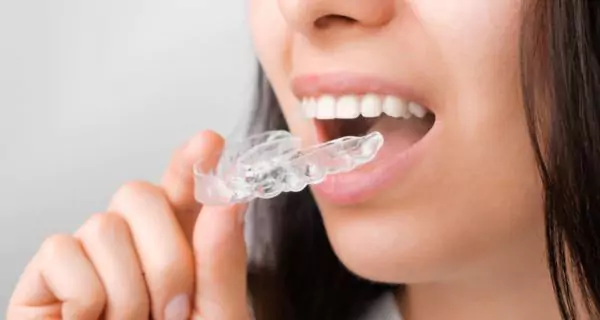
Aligners are custom-made, removable trays that progressively move the teeth into better positions. They are discreet, comfortable, and ideal for people who want a more aesthetic and flexible treatment.
Just suited for mild to moderate overbites, aligners must be worn 20 to 22 hours a day for optimal results. They are removed only for eating, drinking, and oral hygiene routines.
Traditional braces
Braces are a great option for correcting overbites. They apply gentle, continuous pressure, gradually moving the teeth into place.
Treatment duration typically ranges from 1 to 3 years, depending on the patient’s age and the severity of the overbite. Braces are highly effective for patients of all ages, and they can also correct crowding, spacing, and rotation issues along the way.
They are often combined with other tools to improve results, for example:
- Rubber bands (elastics): Help pull the top teeth back and the bottom teeth forward. Often used for mild to moderate overbites.
- Herbst appliance: Guides jaw growth in children by holding the lower jaw forward.
- Forsus springs: Work like elastics but with more consistent pressure and often faster results.
Surgical options for severe overbites
It’s not always possible to fix an overbite with non-surgical options. Sometimes, small procedures like tooth extractions are needed, and in more severe cases, orthognathic surgery may be required to correct the jaw alignment. Let’s take a closer look.
Tooth extractions
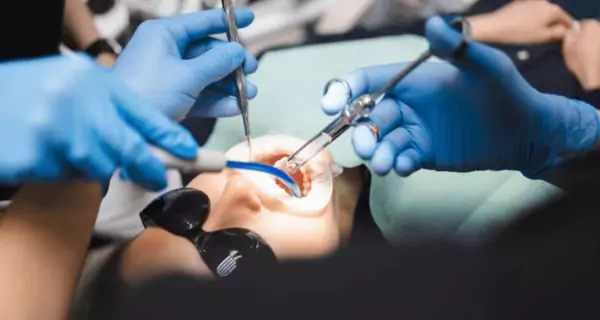
In cases of severe crowding, where there’s not enough space in the mouth to align the teeth properly, tooth extraction may be necessary. Removing one or more teeth will create room to reposition the remaining ones.
Extractions are typically combined with braces to realign the bite and correct the overbite more effectively.
Jaw surgery (orthognathic surgery)
In some cases, especially when the overbite is caused by skeletal issues, orthodontic treatment alone isn’t enough. These situations may require orthognathic surgery to reposition the jaw and achieve long-term correction.
This procedure involves repositioning the upper jaw, lower jaw, or both to correct the bite and jaw alignment. It is often combined with braces before and after surgery to prepare the teeth and stabilize the result.
- Recovery: Healing takes several weeks. During the first phase, a soft food diet is necessary, and it’s crucial to follow your surgeon’s instructions. Full recovery may take a few months.
- Benefits: Although it is more invasive, surgery offers a permanent and functional solution for people with severe overbites and skeletal imbalances. It often leads to improvements in facial harmony and quality of life.
Whether the treatment involves surgery or not, the orthodontist will determine the best course of action. Every case is unique, and only a specialist can recommend the most effective and appropriate solution.
Tips for maintaining results after treatment
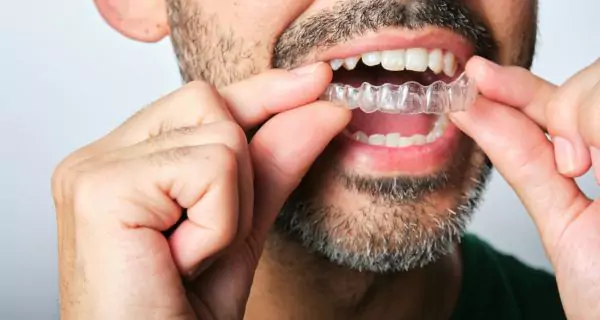
Correcting an overbite is a major step, but maintaining the results is just as important. Teeth have what many call “dental memory”, which means they have a tendency to shift back to their original positions over time if not properly maintained.
The role of retainers
Retainers are essential for keeping the teeth aligned after treatment. They can be removable or fixed; your orthodontist will recommend the best option for you based on your case.
Tips to protect your new smile
- Wear your retainers as directed: Even if they feel uncomfortable at first, they are key to preserving your results.
- Keep up with regular check-ups: Routine visits help catch any unwanted shifting early.
- Maintain excellent oral hygiene: Brush at least twice a day, floss daily and use mouthwash to keep your gums and teeth healthy.
An overbite is more than a cosmetic concern; it’s a condition that can affect your oral health, jaw function, and overall well-being. From discomfort and wear to confidence issues, an untreated overbite can impact many areas of life.
Fortunately, with today’s advances in orthodontics and surgery, there’s a treatment option for every need, whether it’s braces, clear aligners, or orthognathic surgery. The key is to act early, consult a qualified orthodontist, and choose the approach that works best for you.
Because fixing your bite isn’t just about straightening teeth, it’s about regaining comfort, balance, and confidence in your smile.
Frequently Asked Questions
Can an overbite fix itself over time?
What age is best to treat an overbite?
Will fixing my overbite change the shape of my face?
Can I fix an overbite at home?
Can overbites return after treatment?
Share
References
1. Beddis, H. P., Durey, K., Alhilou, A., & Chan, M. F. W. Y. (2014). The restorative management of the deep overbite. BDJ, 217(9), 509-515. https://doi.org/10.1038/sj.bdj.2014.953
2. Boonchuay, N., Thongudomporn, U., Leethanakul, C., Lindauer, S. J., & Youravong, N. (2022). Overbite recognition and factors affecting esthetic tolerance among laypeople. The Angle orthodontist, 93(2), 205–212. https://doi.org/10.2319/051822-367.1
3. Cleveland Clinic Collaborators. (2024, 09 February). Overbite. Cleveland Clinic. https://my.clevelandclinic.org/health/diseases/21473-overbite
4. Silver, N. (2020, 31 August). Deep Bite: More Than a Cosmetic Issue. Healthline. https://www.healthline.com/health/deep-bite-more-than-a-cosmetic-issue
5. Whelan, C. (2020, 27 July). What Types of Braces Work Best for An Overbite? Healthline. https://www.healthline.com/health/overbite-braces
-
Dr. Yeidy Carolina Mesa [Author]
DDS Yeidy Carolina Mesa Passionate Dentist | Advocate for Accessible Oral Health Education Graduating from Universidad CES in 2022, I am a dedicated general dentist with a lifelong passion for helping others and making a meaningful impact in the world. My journey into dentistry began at the age of 7, inspired by my own experience with braces and overcoming a fear of the dentist. This personal journey shaped my mission to help patients conquer their own dental anxieties and embrace a healthier,...
View all posts
-
Nayibe Cubillos M. [Medical Reviewer]
Pharmaceutical Chemestry |Pharmaceutical Process Management | Pharmaceutical Care | Pharmaceutical Services Audit | Pharmaceutical Services Process Consulting | Content Project Manager | SEO Knowledge | Content Writer | Leadership | Scrum Master
View all posts
A healthcare writer with a solid background in pharmaceutical chemistry and a thorough understanding of Colombian regulatory processes and comprehensive sector management, she has significant experience coordinating and leading multidisciplina...Recent Posts


